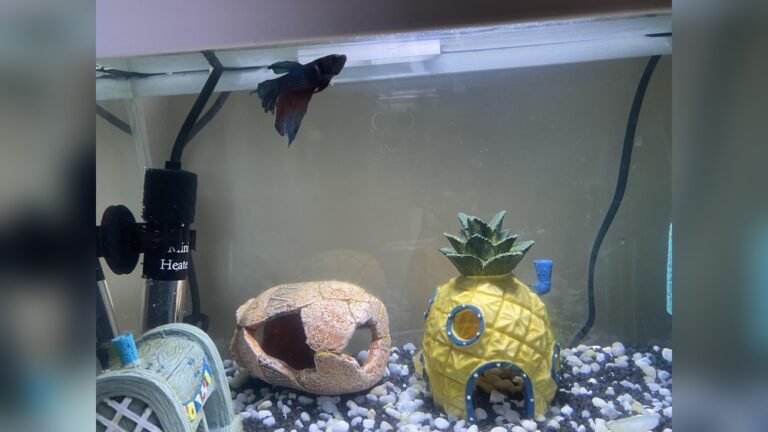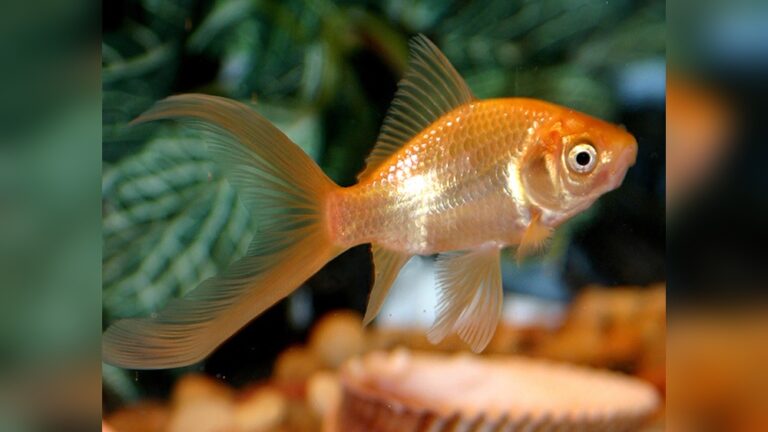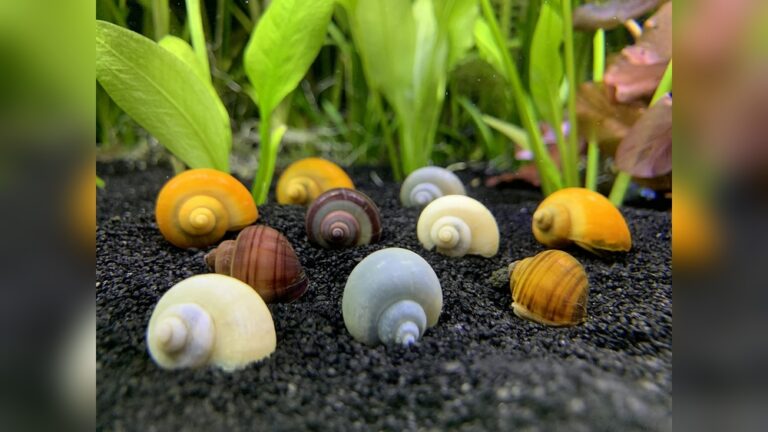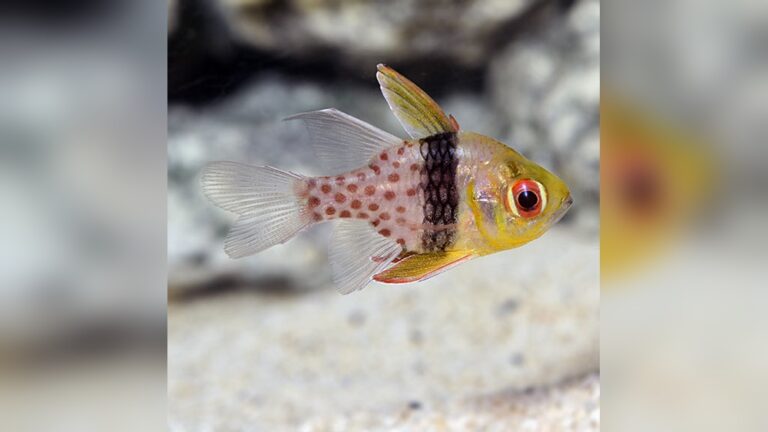How Long Do Betta Fish Live? Essential Care Tips for Longevity
Betta fish, also known as Siamese fighting fish, can live 2 to 5 years. Their lifespan depends on care, environment, and genetics.
Betta fish are popular pets due to their vibrant colors and unique personalities. But how long can you expect your betta fish to be part of your life? Understanding their lifespan is crucial for providing the best care. Factors like tank size, water quality, and diet play essential roles in their longevity.
By knowing how to care for your betta fish properly, you can ensure they live a full and healthy life. Let’s dive into the details and discover what affects a betta fish’s lifespan and how you can help your aquatic friend live longer.
Betta Fish Lifespan
Betta fish, also known as Siamese fighting fish, are popular pets. Many people wonder about their lifespan. Knowing how long bettas live helps in providing better care. Let’s dive into the factors that affect their lifespan.
Average Life Expectancy
On average, betta fish live between 2 to 5 years. With proper care, they can sometimes live even longer. Their lifespan depends on their environment and care. A well-maintained tank and healthy diet contribute to a longer life.
Factors Influencing Lifespan
Several factors influence the lifespan of betta fish:
- Water Quality: Clean water is crucial. Poor water quality can cause diseases.
- Diet: A balanced diet with protein-rich food keeps bettas healthy.
- Tank Size: A larger tank offers more swimming space and better water conditions.
- Temperature: Betta fish thrive in warm water. Ideal temperature is between 76°F and 82°F.
- Stress: Avoid overcrowding the tank. Stress can shorten their lifespan.
Providing a suitable environment ensures your betta fish lives a long and healthy life. Regular tank maintenance and proper feeding habits are key. Consider these factors to maximize their lifespan.
Choosing A Healthy Betta
Choosing a healthy Betta fish is key to ensuring a longer lifespan. Betta fish are vibrant and hardy, but selecting the right one can make a significant difference. This section will guide you through identifying healthy Betta fish and recognizing signs of illness.
Identifying Healthy Fish
A healthy Betta fish displays bright, vibrant colors. Their fins should be fully extended and free from tears. The body should be free from spots, lumps, or discoloration. A healthy Betta also shows active swimming behavior and reacts to stimuli.
| Characteristics | Healthy Betta |
|---|---|
| Color | Bright and vibrant |
| Fins | Fully extended and intact |
| Body | Free from spots or lumps |
| Behavior | Active and responsive |
Signs Of Illness
Recognizing signs of illness early can save your Betta’s life. Common symptoms include faded colors, clamped fins, and lethargy. Bettas with cloudy eyes, white spots, or labored breathing may be unwell. Look for unusual swimming patterns or a lack of appetite as these can also indicate health issues.
- Faded colors
- Clamped fins
- Lethargy
- Cloudy eyes
- White spots
- Labored breathing
- Unusual swimming patterns
- Lack of appetite
Proper Tank Setup
Proper tank setup plays a crucial role in the lifespan of betta fish. A well-maintained tank creates a healthy environment. This ensures your betta fish thrive and live longer. Let’s explore the essential aspects of proper tank setup.
Tank Size And Environment
Betta fish need space to swim and explore. A tank of at least 5 gallons is ideal. This gives them enough room to move around. Smaller tanks can cause stress and health issues. Decorate the tank with plants and hiding spots. Betta fish enjoy exploring their surroundings. Live plants can help maintain water quality. They also provide a more natural environment.
Water Quality And Filtration
Clean water is vital for betta fish health. Regular water changes are essential. This prevents the buildup of harmful toxins. Aim to change 20-25% of the water weekly. Use a gentle filter to keep the water clean. Betta fish have delicate fins. Strong currents can harm them. Choose a filter with adjustable flow. This helps maintain a calm environment.
Monitor water parameters regularly. Keep the temperature between 76-82°F. Betta fish are tropical and need warm water. Check ammonia, nitrite, and nitrate levels. High levels can be harmful. Use a water conditioner to remove chlorine. This makes tap water safe for betta fish.
Optimal Water Conditions
Ensuring your Betta fish live long and healthy lives begins with maintaining optimal water conditions. The right environment helps Betta fish thrive and show their vibrant colors.
Temperature Requirements
Betta fish need consistent water temperatures. They thrive best between 76°F and 82°F (24°C to 28°C). Fluctuating temperatures can stress Betta fish. This stress can lead to diseases. Use an aquarium heater to maintain stable temperatures.
Ph Levels And Hardness
Betta fish prefer water with a pH level between 6.5 and 7.5. Testing your water regularly ensures the pH stays within this range. You can use a water test kit to check pH levels easily. If needed, adjust the pH using aquarium-safe products.
Water hardness also affects Betta fish health. Betta fish do well in soft to moderately hard water. The ideal range is between 3 to 5 dGH (degrees of general hardness). Ensure to monitor and adjust the hardness as necessary.
| Water Parameter | Optimal Range |
|---|---|
| Temperature | 76°F – 82°F (24°C – 28°C) |
| pH Level | 6.5 – 7.5 |
| Water Hardness | 3 – 5 dGH |
Feeding Your Betta
Feeding your Betta is essential for their health and longevity. A proper diet ensures your Betta fish thrives and lives a long life. This section will cover your Betta’s dietary needs and feeding schedule.
Dietary Needs
Bettas are carnivorous fish. They need a high-protein diet. Here are some food options for Bettas:
- Betta pellets: Specially formulated for Betta fish.
- Freeze-dried foods: Bloodworms, brine shrimp, and daphnia.
- Frozen foods: More nutritious than freeze-dried options.
- Live foods: Mosquito larvae, brine shrimp, and daphnia.
Betta pellets should be the primary food source. Supplement with freeze-dried, frozen, or live foods. This provides variety and essential nutrients.
Feeding Schedule
Establishing a feeding schedule is crucial. Overfeeding can lead to health issues. Here’s a simple feeding schedule to follow:
| Time | Food | Quantity |
|---|---|---|
| Morning | Betta pellets | 2-3 pellets |
| Evening | Betta pellets or freeze-dried food | 2-3 pellets or a small pinch |
Feed your Betta twice daily. Ensure you don’t overfeed. Remove any uneaten food after a few minutes.
Occasionally, offer a fasting day. This helps in digestion and prevents constipation. A fasting day once a week is sufficient.
By understanding your Betta’s dietary needs and maintaining a proper feeding schedule, you can ensure a healthy and happy Betta fish.
Preventing Common Diseases
Betta fish can live up to five years with proper care. Clean tanks and healthy diets are key. Preventing common diseases ensures a longer life.
Keeping your betta fish healthy is vital for its long life. Preventing common diseases helps your fish live longer and stay active. A clean tank and a balanced diet are key. But knowing the signs of illness can make a big difference.
Recognizing Symptoms
Recognize symptoms early to treat your betta fish effectively. Look for changes in behavior and appearance. Common signs include lethargy, loss of appetite, or unusual swimming patterns. White spots, ragged fins, or bloated bodies also indicate problems.
Treatment Options
Treat sick betta fish quickly to improve their chances of recovery. Isolate the sick fish in a separate tank. Use water conditioners and medication designed for betta fish. Follow the dosage instructions carefully. Maintain clean water and a stable temperature for the best results.
Promoting Mental Stimulation
Betta fish are intelligent and curious creatures. To keep them healthy, they need more than just a clean tank and good food. They need mental stimulation. This keeps their minds active and helps them live longer. Here are some ways to keep your Betta fish entertained and engaged.
Tank Decorations
Decorating your Betta fish tank can make a big difference. Use plants, rocks, and caves. These items give your fish places to explore and hide. Live plants are the best option. They provide oxygen and look natural. Fake plants work too but choose ones with soft edges. Sharp decorations can harm your Betta’s delicate fins.
Change the tank decorations every few weeks. This keeps the environment fresh. Your Betta will enjoy exploring new spaces. It prevents boredom and promotes mental stimulation. Make sure the decorations are safe and free from chemicals.
Interactive Toys
Interactive toys can also help keep your Betta fish engaged. Floating toys or mirrors are good choices. A floating log can give your Betta a place to rest near the surface. A mirror can stimulate your fish. It will think there’s another Betta nearby. Use the mirror for a few minutes each day.
Ping pong balls can be fun too. Drop one in the tank and watch your Betta push it around. These toys encourage movement and curiosity. Rotate the toys to keep things interesting. Always supervise your Betta during playtime. This ensures they stay safe and happy.
Routine Maintenance
Regular maintenance is crucial for the health and longevity of your betta fish. Keeping their environment clean and monitoring their health can significantly extend their lifespan. This section covers essential tasks to ensure your betta fish thrives.
Cleaning Schedule
A clean tank is vital for a betta fish’s health. Betta fish are sensitive to poor water conditions. Follow a regular cleaning schedule to maintain a healthy environment.
- Change 25-50% of the water weekly.
- Use a siphon to remove debris from the gravel.
- Clean the tank walls with an algae scraper.
- Rinse decorations with warm water, not soap.
- Check and clean the filter monthly.
Regular water changes reduce harmful toxins. Ensure you use a water conditioner to neutralize chlorine and heavy metals.
Monitoring Health
Keeping an eye on your betta fish’s health is essential. Early detection of problems can prevent serious issues.
- Observe their behavior daily.
- Look for signs of stress or illness.
- Check for changes in color or appearance.
- Ensure they are eating properly.
Common signs of illness include clamped fins, lethargy, and white spots. If you notice any of these symptoms, consult a vet experienced with fish.
Maintaining a clean environment and monitoring health are key to a long, happy life for your betta fish.
Frequently Asked Questions
How Long Do Betta Fish Live In A Tank?
Betta fish typically live for 3 to 5 years in a tank. Proper care, clean water, and a balanced diet can extend their lifespan.
What Affects Betta Fish Lifespan?
Several factors affect Betta fish lifespan, including water quality, diet, and tank conditions. Providing a suitable environment can help them live longer.
Can Betta Fish Live Longer Than 5 Years?
Yes, Betta fish can live longer than 5 years with exceptional care. This includes maintaining optimal water conditions and providing a nutritious diet.
Do Betta Fish Live Longer In Larger Tanks?
Betta fish often live longer in larger tanks. Larger tanks provide better water quality and more space for swimming, promoting overall health.
Conclusion
Betta fish can live a healthy life with proper care. Their average lifespan is around three years. Clean water and a balanced diet are essential. Regular tank maintenance helps keep them healthy. Avoid overfeeding to prevent health issues. Betta fish thrive in a stress-free environment.
Monitor their health and seek help if needed. Caring for betta fish can be rewarding. Enjoy their beauty and vibrant colors.






